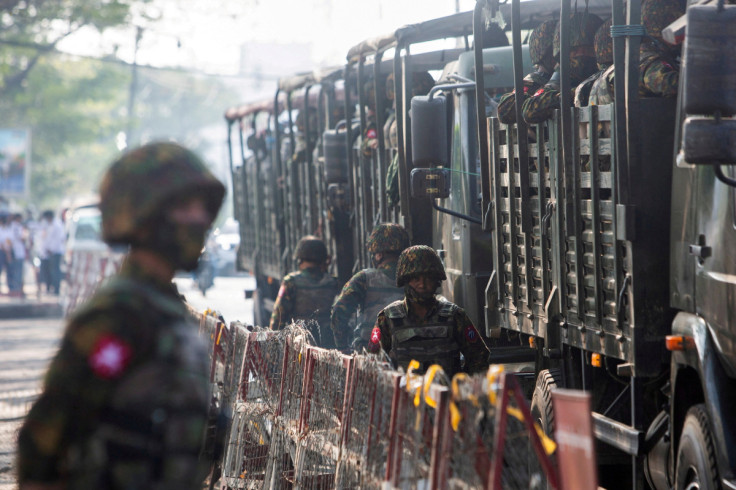Russian Support For Myanmar Junta 'Destabilising' Southeast Asia - U.S Envoy

Russia's backing for Myanmar's military rulers is unacceptable and destabilising, with its supply of weapons helping to fuel a conflict that has become a catastrophe for the country, a top U.S. official said on Thursday.
The United States is concerned about the wider impact of the escalating crisis in Myanmar since a coup in 2021 and advancement of the junta's ties with Russia, which could seek to establish military bases in the country, U.S. State Department Counselor Derek Chollet told Reuters.
"Anyone who is talking to Moscow needs to tell them that their continued military support for the junta is unacceptable. It's destabilising," he said in an interview during his trip to Southeast Asia.
"And it's not only a problem for Myanmar, it's a problem for this region."
Myanmar has been in turmoil since the coup that ended a decade of tentative democracy, with about 1.2 million people displaced by fighting, according to the United Nations, as the military seeks to crush resistance to its rule.
Activists and U.N. experts have condemned Russia, the first major power to voice support for the junta, as well as China, for supplying weapons to a military they accuse of systematic atrocities against civilians. The junta says it is fighting "terrorists".
"What I have seen over the last several years is a military relationship that is only growing," Chollet said.
"I'm more concerned right now about the supply of weapons going into Myanmar from Russia principally."
Russia has become Myanmar's closest ally since the coup and as the West ramps up sanctions on both countries.
Russia's defence minister and top diplomat have visited Myanmar, while junta chief Min Aung Hlaing has been to Russia several times since 2021 and was given an honorary doctorate.
Chollet said the Biden administration saw the crisis in Myanmar as "the most acute threat" in Southeast Asia, including instability, cross-border crime and illegal narcotics.
He said the United States backed a Southeast Asian diplomatic effort in Myanmar and was working with those countries to engage the democratic opposition.
"We believe that other countries should do the same thing.. that they should engage," he added.
He also said countries in the region had expressed anxiety about U.S.-China tensions.
"We want to handle this relationship responsibly, we want to put guardrails on areas where we have differences," Chollet said.
"We're not afraid of competition ... There are going to be areas of the relationship that will be confrontational, because we are going to fundamentally disagree, like for example, on the future of Taiwan."
(Editing by Martin Petty)
© Copyright Thomson Reuters {{Year}}. All rights reserved.





















